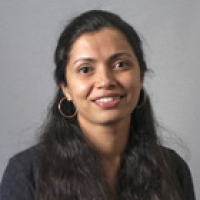Project
Solid: Social Linked Data

When using the Web, people should have the freedom to choose where their data resides and who is allowed to access it by decoupling content from the application itself. Because applications are decoupled from the data they produce, users will be able to avoid vendor lock-in by seamlessly switching the apps and personal data storage servers, without losing any data or social connections. Developers will be able to easily innovate by creating new apps or improving current apps, all while reusing existing data that was previously created through other applications.
Ongoing projects
- SolidVC : a decentralized framework for Verifiable Credentials on the Web, Kayode Ezike, MIT MEng thesis 2019.
Credentials are an integral part of our lives, as they express our capabilities and enable access to restricted services and benefits. In the early 2010s, the Verifiable Claims Working Group of the World Wide Web Consortium (W3C) proposed a specification for what is now the Verifiable Credentials Data Model. This living specification, which is still in development, outlines a cogent framework for the issuance, storage, presentation, and verification of credentials on the Web. SolidVC is a decentralized Verifiable Credentials platform built with the open protocols of the Web. - Privacy-Preserving Data Aggregation on the Decentralized Web, Cory Lynch
A decentralized Web architecture such as Solid has many potential applications that are made possible by the improved ownership of data when managed by user pods. The particular use case that we investigated is the flexible computation of aggregate statistics across a large population of users. Our extension of Solid demonstrates how the decentralized model can be useful by providing strong privacy guarantees when calculating an aggregate by using fully homomorphic encryption. As a result, this research not only presents a viable method for privacy-preserving data aggregation, but also demonstrates an additional benefit of a decentralized architecture deployed across the Web. - Investigating Decentralized Management of Health and Fitness Data, Jason Paulos, MEng Thesis 2020.
Electronic healthcare records are the new standard for storing healthcare data due to their ability to be easily and quickly accessed. Additionally, a new class of fitness records have been created in recent years due to the rise of wearable devices by companies like Fitbit, Apple, and Google. Yet these fitness records are all stored in different formats and can be difficult to extract from the proprietary systems in which they are stored. There are great potential benefits for individuals, healthcare professionals, and researchers to combine this new source of fitness data with traditional patient records in a secure way. Solid offers a solution to this problem by allowing individuals to store and manage their health data through the use of personal data stores. The main contributions of this thesis are extending Solid libraries to support the development of mobile Solid applications, developing the functionality to integrate sensor data from phones and wearables into Solid and model it using the FHIR RDF specification, and creating Solid Health, a proof-of-concept decentralized mobile health application.
Group
Decentralized Information Group (DIG)Communities
Cognitive AI Community of Research Computing & Society Community of ResearchRelated Links
Contact us
If you would like to contact us about our work, please refer to our members below and reach out to one of the group leads directly.
Last updated Jun 09 '25

